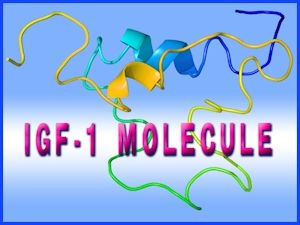Introduction to Hypopituitarism
Hypopituitarism is a rare medical condition characterized by the decreased production of one or more of the hormones produced by the pituitary gland. Located at the base of the brain, the pituitary gland is often referred to as the "master gland" due to its critical role in regulating various bodily functions through hormone secretion. When the pituitary gland fails to produce sufficient hormones, it can lead to a cascade of health issues, including disruptions in the body's metabolic processes and reproductive functions.
The Connection to Erectile Dysfunction
Erectile dysfunction (ED) is a common concern among American males, affecting millions across the country. While many factors can contribute to ED, including psychological stress and vascular diseases, hormonal imbalances stemming from hypopituitarism can also play a significant role. The pituitary gland produces hormones such as luteinizing hormone (LH) and follicle-stimulating hormone (FSH), which are essential for testosterone production. Testosterone is crucial for maintaining libido and erectile function. Therefore, deficiencies in these hormones can directly impact sexual health.
Hormonal Imbalances and Their Effects
In hypopituitarism, the deficiency in LH and FSH can lead to reduced testosterone levels, which is a primary cause of ED. Testosterone not only influences sexual desire but also plays a vital role in the physiological processes that facilitate an erection. Additionally, other pituitary hormones like growth hormone and thyroid-stimulating hormone, which can also be affected in hypopituitarism, have indirect effects on overall health and energy levels, further exacerbating ED.
Diagnosis and Treatment Approaches
Diagnosing hypopituitarism involves a series of blood tests to measure hormone levels, along with imaging studies like MRI to assess the pituitary gland's structure. Once hypopituitarism is confirmed, treatment typically involves hormone replacement therapy (HRT) to restore the deficient hormones to normal levels. For men experiencing ED due to hypopituitarism, testosterone replacement therapy can be particularly beneficial. It's important for patients to work closely with their healthcare providers to tailor the treatment to their specific needs, as individual responses to HRT can vary.
Lifestyle and Management Strategies
Beyond medical treatment, lifestyle modifications can also play a crucial role in managing hypopituitarism and its associated ED. Regular physical activity, a balanced diet, and stress management techniques can help improve overall health and hormone balance. For many American men, integrating these lifestyle changes can enhance the effectiveness of medical treatments and improve quality of life.
The Importance of Awareness and Early Intervention
Awareness of the connection between hypopituitarism and ED is crucial for early intervention. Many men may not associate their sexual health issues with a pituitary disorder, leading to delayed diagnosis and treatment. Educating healthcare providers and the public about this link can lead to more timely and effective management of the condition.
Conclusion
Hypopituitarism can significantly impact a man's sexual health, particularly by contributing to erectile dysfunction through hormonal imbalances. Understanding this connection is vital for American males facing these challenges. With appropriate diagnosis, hormone replacement therapy, and lifestyle adjustments, men can manage hypopituitarism effectively and improve their overall well-being. As research continues to evolve, the hope is for even more targeted and effective treatments for those affected by this condition.
Contact Us For A Fast And Professional Response

- Unraveling the Link Between Hypopituitarism and Cardiovascular Health in American Males [Last Updated On: March 3rd, 2025] [Originally Added On: March 3rd, 2025]
- Hypopituitarism's Impact on American Men: Symptoms, Challenges, and Coping Strategies [Last Updated On: March 10th, 2025] [Originally Added On: March 10th, 2025]
- Unraveling the Link Between Hypopituitarism and Metabolic Syndrome in American Males [Last Updated On: March 15th, 2025] [Originally Added On: March 15th, 2025]
- Hypopituitarism and Cardiovascular Health: Unveiling the Hidden Risks in American Males [Last Updated On: March 16th, 2025] [Originally Added On: March 16th, 2025]
- Unveiling the Connection: Hypopituitarism and Uterine Fibroids in American Males [Last Updated On: March 16th, 2025] [Originally Added On: March 16th, 2025]
- Understanding Hypopituitarism and Its Impact on Male Reproductive Health [Last Updated On: March 16th, 2025] [Originally Added On: March 16th, 2025]
- Unraveling the Hormonal Link: Hypopituitarism and Breast Cancer in American Males [Last Updated On: March 16th, 2025] [Originally Added On: March 16th, 2025]
- Hypopituitarism's Impact on Cognitive Function in American Males: Diagnosis and Management [Last Updated On: March 17th, 2025] [Originally Added On: March 17th, 2025]
- Hypopituitarism and Autoimmune Disorders: Implications for American Males [Last Updated On: March 18th, 2025] [Originally Added On: March 18th, 2025]
- Hypopituitarism in American Males: Impacts on Sleep and Hormonal Balance [Last Updated On: March 18th, 2025] [Originally Added On: March 18th, 2025]
- Hypopituitarism in American Males: Impact on Skin Health and Management Strategies [Last Updated On: March 18th, 2025] [Originally Added On: March 18th, 2025]
- Hypopituitarism and Obesity in American Males: Hormonal Impacts and Management Strategies [Last Updated On: March 18th, 2025] [Originally Added On: March 18th, 2025]
- Hypopituitarism in American Males: Pituitary Tumors and Surgical Management Insights [Last Updated On: March 18th, 2025] [Originally Added On: March 18th, 2025]
- Hypopituitarism and Anemia in American Males: The Erythropoietin Connection [Last Updated On: March 19th, 2025] [Originally Added On: March 19th, 2025]
- Multidisciplinary Approach to Managing Hypopituitarism in American Males [Last Updated On: March 19th, 2025] [Originally Added On: March 19th, 2025]
- Hypopituitarism in Aging American Males: Symptoms, Impact, and Management Strategies [Last Updated On: March 20th, 2025] [Originally Added On: March 20th, 2025]
- Hypopituitarism in American Males: Cancer Risks and Management Strategies [Last Updated On: March 21st, 2025] [Originally Added On: March 21st, 2025]
- Hypopituitarism and Male Pattern Baldness: Hormonal Links and Psychological Impacts [Last Updated On: March 21st, 2025] [Originally Added On: March 21st, 2025]
- Hypopituitarism's Impact on Joint Health in American Males: Hormones and Management [Last Updated On: March 21st, 2025] [Originally Added On: March 21st, 2025]
- Hypopituitarism and Hearing Loss: Implications for American Males [Last Updated On: March 22nd, 2025] [Originally Added On: March 22nd, 2025]
- Hypopituitarism in American Males: Impacts on Mental Health and Management Strategies [Last Updated On: March 22nd, 2025] [Originally Added On: March 22nd, 2025]
- Hypopituitarism's Impact on Asthma in American Males: Diagnosis and Management Strategies [Last Updated On: March 22nd, 2025] [Originally Added On: March 22nd, 2025]
- Hypopituitarism's Impact on Immune Function in American Males: Challenges and Management [Last Updated On: March 22nd, 2025] [Originally Added On: March 22nd, 2025]
- Hypopituitarism and Allergies: Exploring Links in American Males [Last Updated On: March 22nd, 2025] [Originally Added On: March 22nd, 2025]
- Hypopituitarism and Seizure Disorders: Neurological Links in American Males [Last Updated On: March 23rd, 2025] [Originally Added On: March 23rd, 2025]
- Hypopituitarism's Impact on Kidney Health: Monitoring and Management Strategies [Last Updated On: March 23rd, 2025] [Originally Added On: March 23rd, 2025]
- Hypopituitarism's Impact on Muscle Strength in American Males: Hormonal and Therapeutic Insights [Last Updated On: March 23rd, 2025] [Originally Added On: March 23rd, 2025]
- Hypopituitarism and CFS Overlap: Challenges and Treatment in American Men [Last Updated On: March 24th, 2025] [Originally Added On: March 24th, 2025]
- Hypopituitarism's Impact on Gastrointestinal Health in American Males: Symptoms and Management [Last Updated On: March 24th, 2025] [Originally Added On: March 24th, 2025]
- Hypopituitarism's Impact on Kidney Health: Essential Monitoring for American Males [Last Updated On: March 24th, 2025] [Originally Added On: March 24th, 2025]
- Hypopituitarism's Impact on Liver Health in American Males: Management and Treatment [Last Updated On: March 25th, 2025] [Originally Added On: March 25th, 2025]
- Hypopituitarism in American Males: Impact on Visual Health and Management Strategies [Last Updated On: March 25th, 2025] [Originally Added On: March 25th, 2025]
- Hypopituitarism and Migraines: Hormonal Links in American Males [Last Updated On: March 25th, 2025] [Originally Added On: March 25th, 2025]
- Hypopituitarism and Stroke Risk in American Males: Monitoring and Management Strategies [Last Updated On: March 25th, 2025] [Originally Added On: March 25th, 2025]
- Autoimmune Link Between Hypopituitarism and RA in American Males: Impacts and Management [Last Updated On: March 25th, 2025] [Originally Added On: March 25th, 2025]
- Hypopituitarism's Impact on Pancreatic Health in American Males: Risks and Management [Last Updated On: March 26th, 2025] [Originally Added On: March 26th, 2025]
- Hypopituitarism's Impact on Parkinson's Disease Progression in American Males [Last Updated On: March 26th, 2025] [Originally Added On: March 26th, 2025]
- Hypopituitarism and IBD Link in American Males: Gastrointestinal and Hormonal Insights [Last Updated On: March 26th, 2025] [Originally Added On: March 26th, 2025]
- Hypopituitarism and Gallbladder Disease: Exploring Links in American Men [Last Updated On: March 26th, 2025] [Originally Added On: March 26th, 2025]
- Hypopituitarism and Pituitary Cancer: Early Detection and Management in American Males [Last Updated On: March 26th, 2025] [Originally Added On: March 26th, 2025]
- Hypopituitarism and Fibromyalgia: Shared Symptoms and Management in American Males [Last Updated On: March 27th, 2025] [Originally Added On: March 27th, 2025]
- Exploring the Link Between Hypopituitarism and Alzheimer's in American Males [Last Updated On: March 27th, 2025] [Originally Added On: March 27th, 2025]
- Hypopituitarism and Dyslipidemia: Impacts and Management in American Males [Last Updated On: March 27th, 2025] [Originally Added On: March 27th, 2025]
- Hypopituitarism, Celiac Disease, and Autoimmune Links in American Males: A Comprehensive Overview [Last Updated On: March 27th, 2025] [Originally Added On: March 27th, 2025]
- Hypopituitarism's Impact on Glucose Metabolism in American Males with Diabetes Mellitus [Last Updated On: March 27th, 2025] [Originally Added On: March 27th, 2025]
- Exploring Hypopituitarism and MS Link in American Males: Diagnosis and Treatment Insights [Last Updated On: March 27th, 2025] [Originally Added On: March 27th, 2025]
- Hypopituitarism's Impact on Osteoarthritis in American Males: Hormonal and Joint Health [Last Updated On: March 27th, 2025] [Originally Added On: March 27th, 2025]
- Hypopituitarism's Impact on Uric Acid and Gout in American Males: A Comprehensive Analysis [Last Updated On: March 27th, 2025] [Originally Added On: March 27th, 2025]
- Hypopituitarism and Hypertension: Impact on Blood Pressure in American Males [Last Updated On: March 27th, 2025] [Originally Added On: March 27th, 2025]
- Hypopituitarism in American Males: Cardiovascular Risks and Management Strategies [Last Updated On: March 28th, 2025] [Originally Added On: March 28th, 2025]
- Hypopituitarism and Sjögren's Syndrome: Impact on Exocrine Glands in American Males [Last Updated On: March 28th, 2025] [Originally Added On: March 28th, 2025]
- Hypopituitarism and Adrenal Cancer: Endocrine Links and Management in American Males [Last Updated On: March 28th, 2025] [Originally Added On: March 28th, 2025]
- Hypopituitarism and Lupus Link in American Males: Clinical Insights and Management [Last Updated On: March 28th, 2025] [Originally Added On: March 28th, 2025]
- Hypopituitarism and Breast Cancer Link in American Males: Hormonal Insights [Last Updated On: March 28th, 2025] [Originally Added On: March 28th, 2025]
- Hypopituitarism and Ovarian Cancer Link in American Males: Emerging Research and Implications [Last Updated On: March 28th, 2025] [Originally Added On: March 28th, 2025]
- Hypopituitarism's Impact on Liver Cirrhosis in American Males: Hormonal and Hepatic Insights [Last Updated On: March 29th, 2025] [Originally Added On: March 29th, 2025]
- Hypopituitarism and Prostate Cancer: Understanding the Link and Managing Risks in American Males [Last Updated On: March 29th, 2025] [Originally Added On: March 29th, 2025]
- Hypopituitarism and Thyroid Cancer Link in American Males: Hormonal Imbalances Explored [Last Updated On: March 30th, 2025] [Originally Added On: March 30th, 2025]
- Hypopituitarism and Testicular Cancer: Impacts on Male Fertility and Management Strategies [Last Updated On: April 1st, 2025] [Originally Added On: April 1st, 2025]
- Hormonal Links Between Hypopituitarism and Endometriosis in American Males Explored [Last Updated On: April 4th, 2025] [Originally Added On: April 4th, 2025]
- Hypopituitarism's Gynecological Links: Uterine Fibroids and Male Health Implications [Last Updated On: April 4th, 2025] [Originally Added On: April 4th, 2025]
- Hypopituitarism and PCOS: Impacts, Diagnosis, and Multidisciplinary Management in Women's Health [Last Updated On: April 5th, 2025] [Originally Added On: April 5th, 2025]
- Hypopituitarism's Hormonal Impact and Cervical Cancer Risk in American Males [Last Updated On: April 6th, 2025] [Originally Added On: April 6th, 2025]
- Hypopituitarism: Impacts on Vaginal Health and Female Reproductive System [Last Updated On: April 8th, 2025] [Originally Added On: April 8th, 2025]
- Hypopituitarism's Impact on Penile Health and Fertility in American Males [Last Updated On: April 8th, 2025] [Originally Added On: April 8th, 2025]
- Hypopituitarism and Premature Ejaculation: Exploring Hormonal Links in American Males [Last Updated On: April 9th, 2025] [Originally Added On: April 9th, 2025]
- Hypopituitarism and Preeclampsia: Hormonal Monitoring Crucial in Pregnancy for American Males [Last Updated On: April 10th, 2025] [Originally Added On: April 10th, 2025]
- Understanding Hypopituitarism and Ectopic Pregnancy: A Guide for Male Partners [Last Updated On: April 10th, 2025] [Originally Added On: April 10th, 2025]
- Hypopituitarism's Impact on Male Fertility and Miscarriage Risk: Hormonal Insights [Last Updated On: April 10th, 2025] [Originally Added On: April 10th, 2025]
- Hypopituitarism's Impact on Male Fertility: Diagnosis, Treatment, and Emotional Support [Last Updated On: April 11th, 2025] [Originally Added On: April 11th, 2025]
- Hypopituitarism's Influence on Gestational Diabetes in American Males: A Metabolic Link [Last Updated On: April 12th, 2025] [Originally Added On: April 12th, 2025]

















